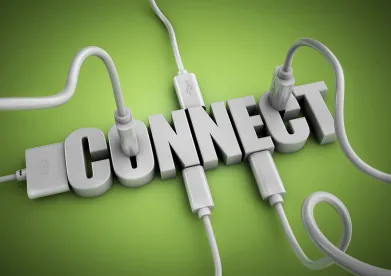Employers are always looking for ways to enhance employee productivity, increase retention and implement positive changes in the workplace. Interestingly enough, it seems one way to do that is by giving employees a chance to unplug from devices, ignore emails and use their time away from work to recharge. That’s what the #DONOTDISTURB movement is all about.
Many app-makers and software developers are finding ways to empower employees to fully enjoy their free-time; while certain regions of the country are looking at legislation to protect employees who don’t jump up to answer emails that come in when the work day is over. Traditionally, legislation of this kind has not gained much traction in the United States, though nations in Europe have led the charge on these ideas.
However, that could change. New York City is leading the way in its attempt to protect employees from burn-out and over-work in the after hours with pending Right to Disconnect legislation. Up until now, though, allowing employees to disconnect after work hours is an idea which might be too foreign to employers in the U.S.
Brooklyn Councilman Rafael Espinel Jr.proposed the legislation, modeled after France’s El Khomri Law. He says, “So many of us are glued to our smartphones and our computers, it’s important to understand that we don’t have to feel as if our work has to spill into our personal lives.” Espinel notes that the bill wouldn’t prohibit employers from sending emails or texts after work hours, however, “It says that you, as an employee, should have the right to not answer that call or that email, without fear of retaliation.”
The proposed law applies to employers with ten or more employees and would require employers to adopt a written policy governing the use of electronic devices and other digital communications during non-work hours, and would set forth the “usual work hours” for each class of employee. The legislation doesn’t make it per se illegal for employers to contact employees after usual work hours, it impacts employers who require employees to respond or who retaliate against employees who do not respond outside of usual work hours.
It imposes fines as high as $250 per violation. Employees who fear losing their job or reprimand for not replying to after-hours emails would have this notion put to rest if the legislation passes in New York City. In addition to the $250 for violating the email ban, employers would be required to compensate terminated employees up to $2,500, in addition to wages, thwarting the notion that employers would take any adverse actions against them, or attempt to punish them for disconnecting after hours. These fines may seem trivial to some, especially in New York City. However, in industries like hospitality, tourism, the restaurant, and other large entertainment industries, major employers have hundreds upon thousands of employees on staff. In turn, these employers would greatly feel the financial impact of the legislation, after a series of said violations. New York’s City Council will hear arguments regarding the bill’s passage early in 2019.
Disconnect Laws Outside the U.S.
In Europe, the Right to Disconnect is widely recognized. Countries including France and Germany have disconnect laws in place that date back to 2016, protecting employees from overwork. For example, France has implemented the El Khomri Law. This law has a requirement in place which monitors how often employers require employees to connect after work hours. The law also minimizes the duration of work days to help reduce employee stress levels. Furthermore, it includes provisions to collective bargaining agreements in the workplace, amongst other protections for employees. Germany has also implemented ‘anti-stress’ and right to disconnect laws, to safeguard employees. Companies like auto manufacturer Daimler and Volkswagen have implemented “Right to Disconnect” policies to guard against employee overwork and burnout.
Overwork Culture and Employee Performance
Why is it that frontline workers feel the need to constantly check emails after work hours? A study conducted by the Chartered Institute of Personnel and development (CIPD), suggests most employees check their emails an average of five times a day after their workday has ended. In the study, Liuba Belkin, an associate professor at Lehigh University notes “The higher the expectation for monitoring organisational email, the less people can detach, the more time they spend on work-related email after hours and the more they are emotionally exhausted.”
This, alongside our “always on” mentality, and the ability to receive emails on smartwatches, phones, and mobile devices from virtually anywhere, promotes the notion that employees have to work around the clock in order to remain abreast with what’s taking place within their organization. This notion, however, leads to high stress, anxiety, and high levels of exhaustion. This ultimately leads to discord in the personal and family lives of employees. Employees carry this anxiety into the workplace, which makes it difficult for them to concentrate, drains energy levels, and creates an unproductive workplace.
The result… employee production suffers, employers aren’t happy with the quality of work, customers aren’t happy, and ultimately, employers are losing profits.
Do Not Disturb Applications
SpeakAp is one of many companies, alongside the likes of, Slack and Cisco providing employees more control of their free time. Implementing features like do not disturb will not only help U.S. employers avoid violating workplace laws when they take effect, but also in helping employees in their desire to disconnect after the workday. Companies and employees will have the option to utilize the SpeakAp “Do Not Disturb” feature, which allows employees to disconnect from work emails when they aren’t working. With an open API interface, customers can simply turn on this feature, and disconnect from work communications when they aren’t working. Why is a feature like this so important? SpeakAp’s co-founder, Patrick Van Der Mijl suggests the issue of an “overwork” culture in the U.S. is not an uncommon issue, pointing to the difference between Europe and the U.S. in vacation and maternity leave policies. But with the emergence of the “right to disconnect” movement, Van Der Mill says, “we’re now at a tipping point where more and more people are recognizing the win-win situation for both sides – employees are happier, less stressed and more productive. At the same time, companies see more engaged employees, improved job performance and lower turnover.” He predicts more and more companies and municipalities, like New York, will begin to “empower employees to switch off outside of working hours, through legislation or via internal HR and employee engagement policies.”
As suggested, affording employees the option to shut off the distractions after the workday, would benefit U.S. employees tremendously, leading to increased production in the workplace, more engaged employees, and more loyalty to the organization as time passes. Although it’s a small step towards increasing workplace happiness and reducing stress, the do not disturb feature might be exactly what employee and employers are looking for.




 />i
/>i

